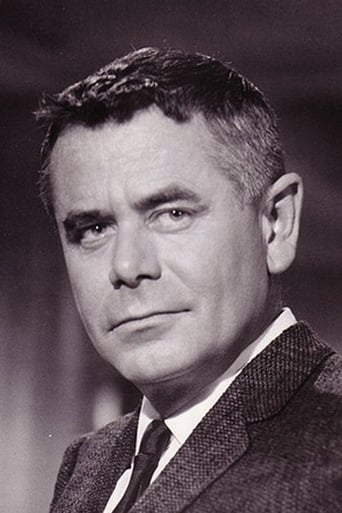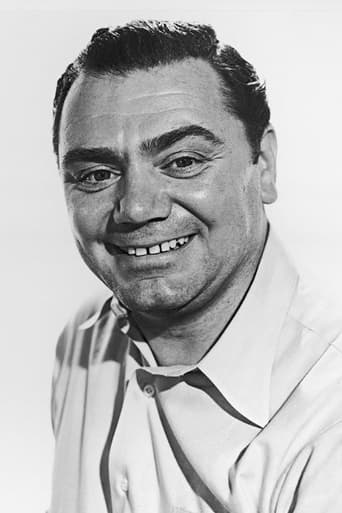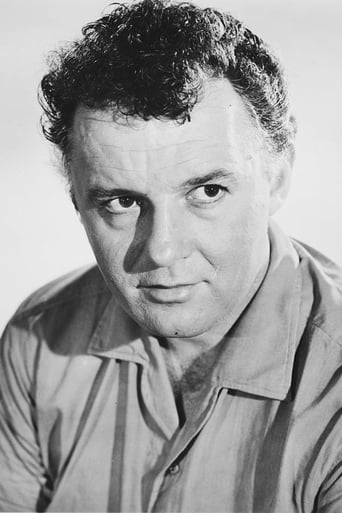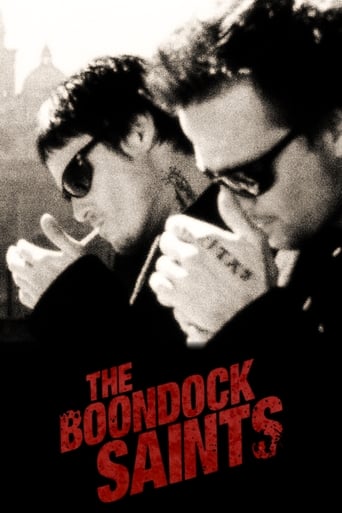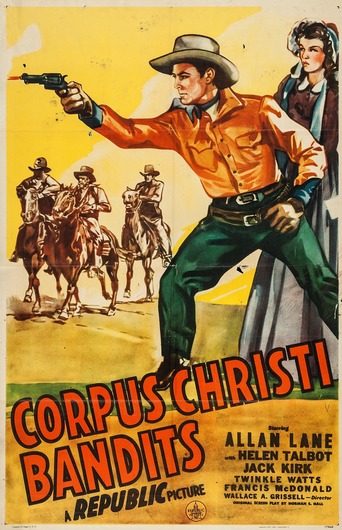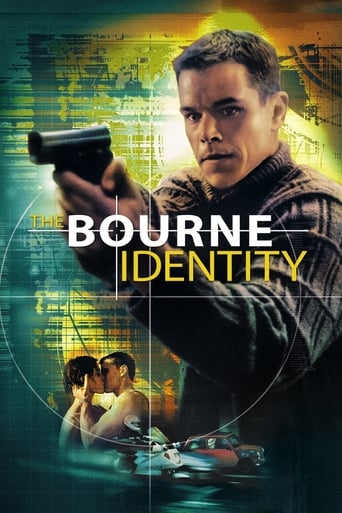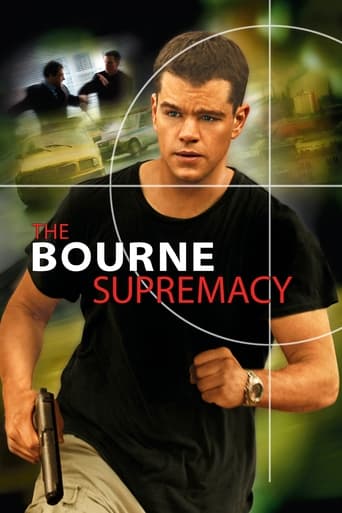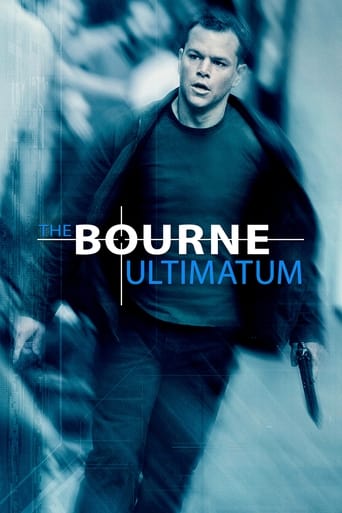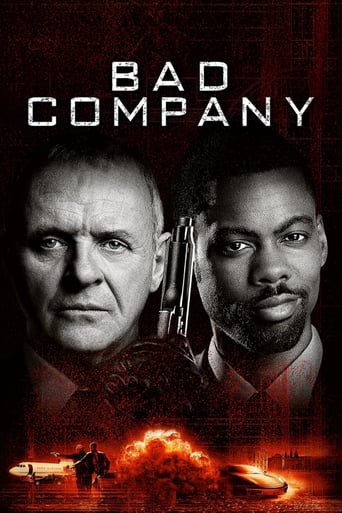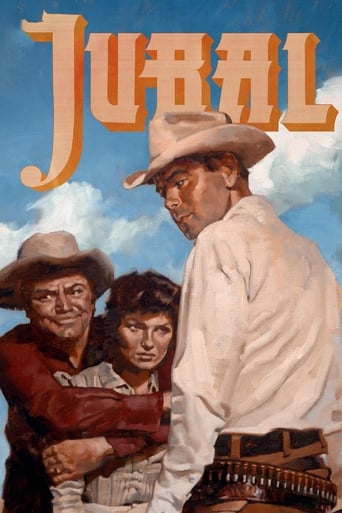
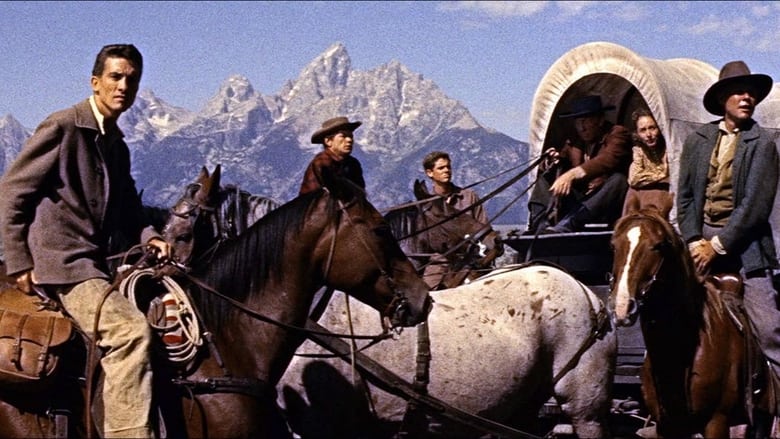
Jubal (1956)
Jubal Troop is a cowboy who is found in a weakened condition, without a horse. He is given shelter at Shep Horgan's large ranch, where he quickly makes an enemy in foreman Pinky, a cattleman who accuses Jubal of carrying the smell of sheep.
Watch Trailer
Cast
Similar titles
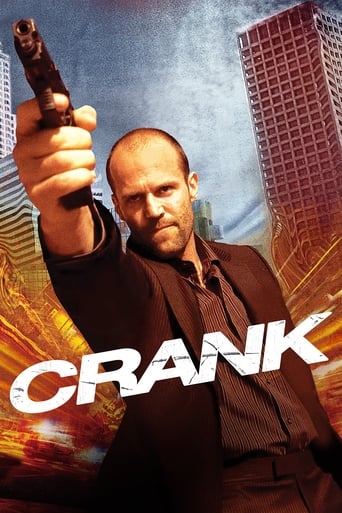
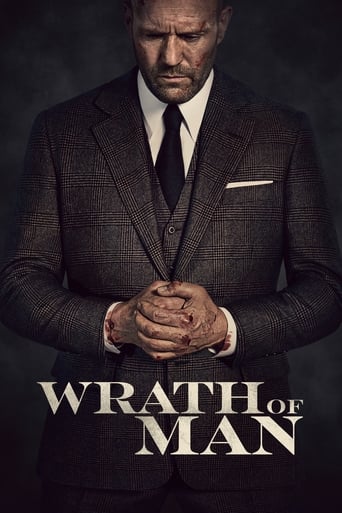
Reviews
So much average
Slow pace in the most part of the movie.
everything you have heard about this movie is true.
The thing I enjoyed most about the film is the fact that it doesn't shy away from being a super-sized-cliche;
Narratively, this can be accurately described as Othello reset as a western had the Moore tried to kill Cassio himself and had Cassio killed him instead. But the similarities only point to the vast differences between these two works. Shakespeare's was a quasi-feudal outlook, in which psychology, however complex, was molded by absolute power relations and as such was fatally determining. Jubal is, like many films by writer/director Delmer Daves, a work of American transcendentalism. Individual psychology, no matter how complex, is but a passing stage towards a higher, more universal, human nature. And that nature is essentially affirmational. Even this tale's Iago, destructive as he is, is not "led away" to die but abandoned by humanity, to reflect and learn to be better. Another important difference between Jubal and Othello is that everyone in this movie is white. There is not a single Black, Latino, or Native American character. Perhaps Daves and Emerson were lying to themselves, but they truly believed that western expansion was an embrace of, a submission to, Nature, rather than the further subjugation of the world to capital. The irony is that this "affirmational" vision offers less hope to the oppressed than does the bleak, ruthless one of Shakespeare. Power, which is to say social order, can always be overturned (though the Bard would not have acknowledged the full implications of this). The transcendental concept of nature, however seemingly benevolent, always implies an irrevocable oppression.
About a week before seeing this film I caught Ernest Borgnine in his Oscar winning performance in the 1955 picture "Marty". So with that still fresh in my mind, I was struck by a comment Borgnine's character Shep Horgan made in this picture when he stated that he 'can't change his ugly face none'. That was the whole idea in "Marty", how a less than attractive man in his mid Thirties had a hard time finding someone that he could fall in love with and eventually marry.Well I guess the film makers took that problem out of Shep Horgan's hands by pairing him up in an unlikely marriage to the vivacious Valerie French. They're an obvious mismatch, and Horgan doesn't do his wife or himself any favors by treating her like any other piece of property on his ranch. So when Jubal Troop (Glenn Ford) shows up and takes a job with Horgan, wife Mae (French) starts flashing her sparkling eyes and curvaceous body in his direction. All enough to create a palpable tension between Jubal and Horgan's top hand, Pinky Pinkum (Rod Steiger).I have to admit, the name Pinky took me off stride for a while, and I had to wonder how a tough ranch hand would allow himself to go by that name. Steiger's character was a roughneck from the word go, and the name just didn't fit, so that was a bit of a distraction for me. He was also pretty much a jerk for most of the picture, squaring off against Ford's character and behaving shamefully as a suitor for the boss's wife. She must have been REALLY bored to put up with him before Jubal came around.As expected, the story sets up a compromising situation for Jubal, and things get more complicated when Jubal shoots his new boss in a forced showdown. A better alternative might have had Ford go up against Steiger with guns blazing, but in any event, Pinky got what was coming to him.Overall, not a bad little Western, with players other than Ford that you generally don't see in the genre. Adding a nice touch in support was Charles Bronson who made quick friends with Jubal, and Jack Elam as foreman of the Bar-8 Ranch. who I would have liked to see have a larger role in the story.
When Jubal Troop is found on Shep Horgan's ranch he isn't well so they take him in; for no apparent reason Pinky, one of the ranch hands takes and instant dislike to him; this dislike grows when Shep hires Jubal and Shep's wife Mae starts to take an interest in him; it is clear that before Jubal's arrival she had been involved with Pinky. Jubal hasn't been working there for long before he and Shep become close friends and he gets offered the job of foreman. Mae continues to make advances towards Jubal but he continues to reject them; out of loyalty to his friend and because he has taken an interest in Naomi, a girl travelling through as part of a wagon-train that has stopped on Shep's land. When Shep asks Jubal to escort his wife home one night Pinky takes the opportunity to poison Shep's mind against his friend; he heads home and finds his wife alone but as he enters the room she calls out Jubal's name thinking he'd finally decided to sleep with her. Shep heads off in a rage with the intention of killing Jubal; he is the one who ends up dead though and Jubal is forced to run as Pinky spreads further lies about him. Pinky thinks everything will go his way now but Mae rejects his advances and he hunts for Jubal with the intention of killing him.This western's plot is clearly inspired by 'Othello', although there are notably differences. Jealousy rears its ugly head early on and although there is little action early on there is a simmering sense of tension as Pinky starts to feel hard done by as Mae rejects him then Shep overlooks him for promotion; in both cases to Jubal. Rod Steiger excels in this roll; playing Pinky as a genuinely nasty piece of work rather than as a pantomime villain. His isn't the only good performance; Glenn Ford puts in a nicely understated performance as Jubal, Ernest Borgnine is likable as Shep and Charles Bronson, in an early role, is good as Jubal's friend Reb. When the action starts it is more low-key than most westerns I've seen but that doesn't mean it isn't exciting; the showdown between Shep and Jubal is particularly good. As well as an interesting story the film looks great as does the Wyoming scenery it was filmed in. If you are a fan of westerns this one is certainly worth watching; just don't expect none stop action.
A stolid Western offering minor interest because it focuses more on love and jealousy than action and violence, Jubal still feels like a long day in the saddle. The acting is generally according to type and nothing more: Glenn Ford is laconic if not emotionally stunted, with eyes that never display any emotion; Ernest Borgnine is better, a bit tamped down from his usual volatile self, though he stills careens from best-buddy to big threat; Valerie French is terrible as the bad Canadian (!) hussy but the role is mostly a device to animate Rod Steiger's jealous Pinky. He's the best character in the movie, but still one dimensional with no arc: bad to the bone from beginning till the end. Ford's eponymous Jubal character actually has a backstory out of Sergio Leone (a mother who wanted him to drown) but he reveals it in an unmotivated scene with Felicia Farr's young Mormon. (As always, the real fault lies with the screenwriter.) More interesting to watch than the characters is the beautiful Jackson Hole scenery, a welcome change from the dusty California backdrop of most oaters.
